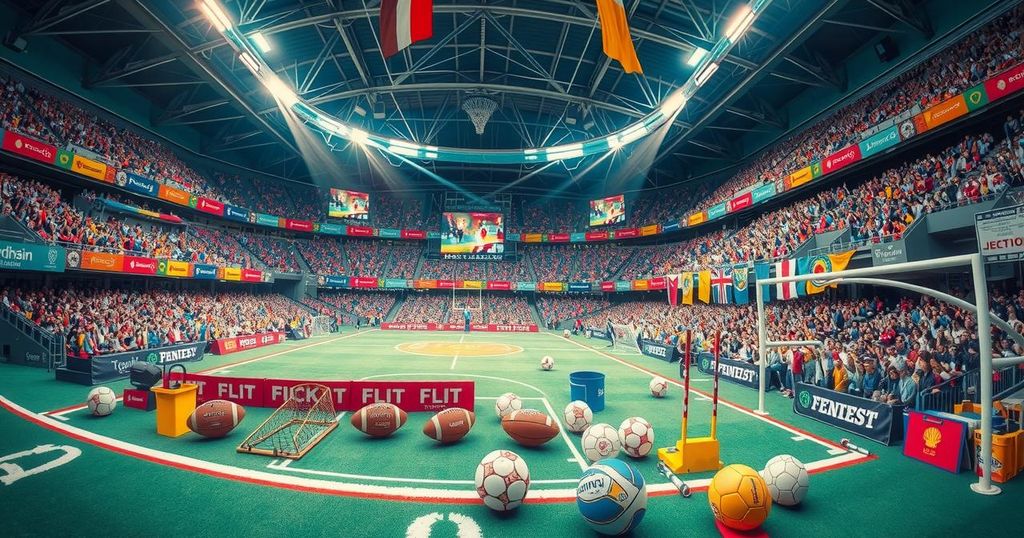IOC Presidential Election Approaches with Heightened Uncertainty

The election for the next IOC president is highly uncertain, with no candidate having a definitive advantage. Key figures such as David Lappartient, Juan Antonio Samaranch Jr., and Kirsty Coventry are contending amid speculation about their chances. The election process is complex, requiring an absolute majority and encompassing critical challenges for the future of the organization.
As the race for the presidency of the International Olympic Committee (IOC) draws to a close, the anticipation is palpable. Set against the picturesque backdrop of Costa Navarino, Greece, IOC members are preparing to cast their votes amid an atmosphere of uncertainty, as currently no candidate exhibits a clear advantage. This election is characterized by heightened unpredictability, making it one of the most significant in recent IOC history.
Among the seven candidates, David Lappartient, president of the International Cycling Union and the French National Olympic and Sports Committee, anticipates that the election process will extend through multiple voting rounds. He likened the campaign to a cycling race, asserting, “I think it’s moving fast, but I’m still in the race. No one can predict the result, and I believe it will take multiple rounds before we have a winner.”
Juan Antonio Samaranch Jr., a prominent contender for the presidency, underscored the confidential nature of the voting process, cautioning against interpreting social signals as indicative of voting intentions. He firmly stated, “I can promise you that I will be working until the very last second – until 3:59 p.m. tomorrow – before the voting starts.”
The election will utilize a secret ballot system, necessitating an absolute majority for a candidate to win. If no candidate achieves this in the first round, the candidate with the fewest votes will be eliminated, and voting will continue until a victor is determined. Sebastian Coe has opted to refrain from extensive media engagement, merely confirming his persistence in the race with the phrase, “I’m still here.”
Kirsty Coventry, noted as the only female candidate and the first African to enter the race, has also chosen to keep a low profile, yet she is rumored to be the preferred successor of current president Thomas Bach. Confidence was expressed by Prince Feisal bin Hussein, who stated, “I’m in it to win it. But at the end of the day, it’s the members who decide.”
Candidates Johan Eliasch and Morinari Watanabe refrained from speculation. Watanabe simply remarked, “I am waiting,” while Eliasch contributed, “We shall see tomorrow.” The forthcoming president will not only lead the IOC but will also tackle critical issues such as political neutrality, financial sustainability, gender equity, and climate change, particularly regarding the future of the Winter Games.
IOC member Martin Fourcade emphasized the significance of leadership qualities for the next president, stating, “The new president must not only have leadership skills but also be able to balance different interests while promoting fairness and sustainability in the Olympic Games.” With the election approaching, candidates continue to lobby undecided voters, underscoring the historic implications of this forthcoming decision for the Olympic Movement.
In conclusion, the impending election for the next president of the IOC stands as a pivotal moment in Olympic history. With no clear frontrunner and a diverse array of candidates, the outcome remains uncertain. Key challenges lie ahead for the newly elected leader, who must navigate complex issues such as sustainability, equity, and the evolving landscape of the Olympics. Regardless of the result, the decisions made in this election will significantly impact the future direction of the Olympic Movement.
Original Source: english.news.cn






